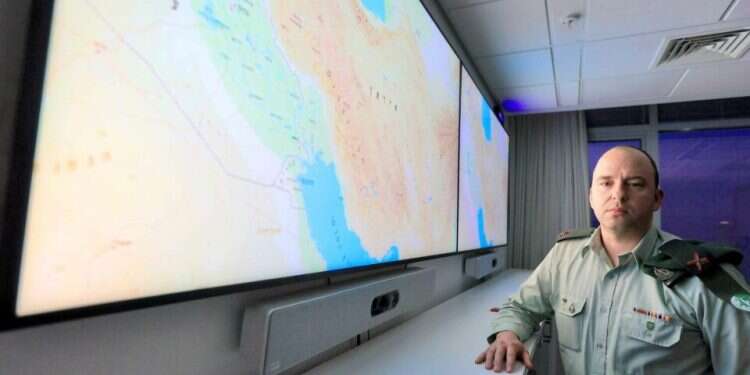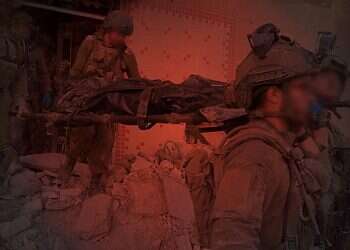"Iran is weeks away from accumulating a sufficient quantity of uranium for a nuclear bomb," says head of the IDF's Military Intelligence Research Division, Brig.-Gen. Amit Sa'ar.
Follow Israel Hayom on Facebook, Twitter, and Instagram
"They're not there yet, but they are getting closer and it's very worrying. It's the most advanced position they've reached in terms of accumulating materials," Sa'ar says.
In a special interview to Israel Hayom, Sa'ar says that the Iranians are continuing to enrich uranium at three levels – 4%, 20%, and 6% -- and that the transition from this to the 90% weapons-grade nuclear material required for a bomb is only a little while away.
"They don't have a technological problem. It's only about the decision. They've achieved complete control of advanced centrifugal technology. They know how to produce and to operate them [the centrifuges], and even if there's an agreement like before, they will need little time from the moment it comes to an end until they will accumulate anew enough material for a bomb."
However, Sa'ar says, the Iranians need about another two years before they will be able to produce a bomb, since they still haven't mastered metallurgy or the production of the explosive device. "But the critical element for doing it, which is the enrichment component, they've achieved. It's very dramatic."
Q: And if they try to surprise, like North Korea, and create facts for the world?
"I don't think Iran wants to be North Korea. It doesn't want to be a leper. It wants to be an influential country in the world, and part of it. From their perspective, the nuclear [bomb] is a tool to achieve their concept of security, but they're very careful because they understand the heavy price of going for a bomb and becoming lepers."
Iran worries Sa'ar in many ways. The nuclear issue is, of course, the most important, but there is also terrorism, and the worrying distribution of weapons.
"Today there's a widening of the arenas and a widening of the threats," he says. "We have right now an event that is mainly Palestinian. In the past we would look at Gaza and Judea and Samaria and maybe at Jerusalem. Today, we need to also look at the northern sector and at Yemen and Iraq, and manage alerts and research, because something might come from there. We're keeping track of it and getting ready for it both with intelligence and operationally."
Sa'ar says there is a large industry in Iran that has branches throughout the region. "I like to give the example of the Quds Force Unit 340, which does design to cost for weapons. They understand that you can't build a missile with Iranian technology and expect the Yemenites to receive it and operate it, so they adapt a relevant production plant for the Yemenites."
The use of cruise missiles and UAVs began, according to Sa'ar, because of Iranian distress. "Rockets are an act of war. You can immediately identify who launched them and from where. UAVs are easy to deliver and easy to deny. They began using them against ships, they understood that it was good and they began to flood the market. They tried to act against us, but they're careful because they understand that it's very difficult to penetrate [Israel] and that we'll respond."
Q: Do you think Israel needs to attack Iran more in Iran?
"Iran is deterred by Israel, and we don't need to limit ourselves to where we do it damage. Every place we do them harm is painful for them, and if you ask them, they are in a poor balance against us, and I'm not talking about attacks waged as part of the 'campaign between the wars' [an ongoing Israeli and military intelligence effort to disrupt the force build-up of the Iranian-Shiite axis throughout the Middle East] but also about attacks that according to foreign media reports took place in Tehran, from unmanned aerial vehicles and attacks on nuclear facilities. But we mustn't forget that Iran is a massive country, and it's far away, and operating there isn't like operating here. It requires different capabilities, and both sides understand that open activities against the other will quickly lead us to an escalation."
The signing of a new nuclear deal, he says, is being prevented because of political reasons. "The vast majority of the issues are solved. The main issue preventing the deal being signing is sanctions. This issue wasn't there at the start, and it's mainly symbolic, because there's pressure on both sides to make a concession. I think in the end, it will be resolved."
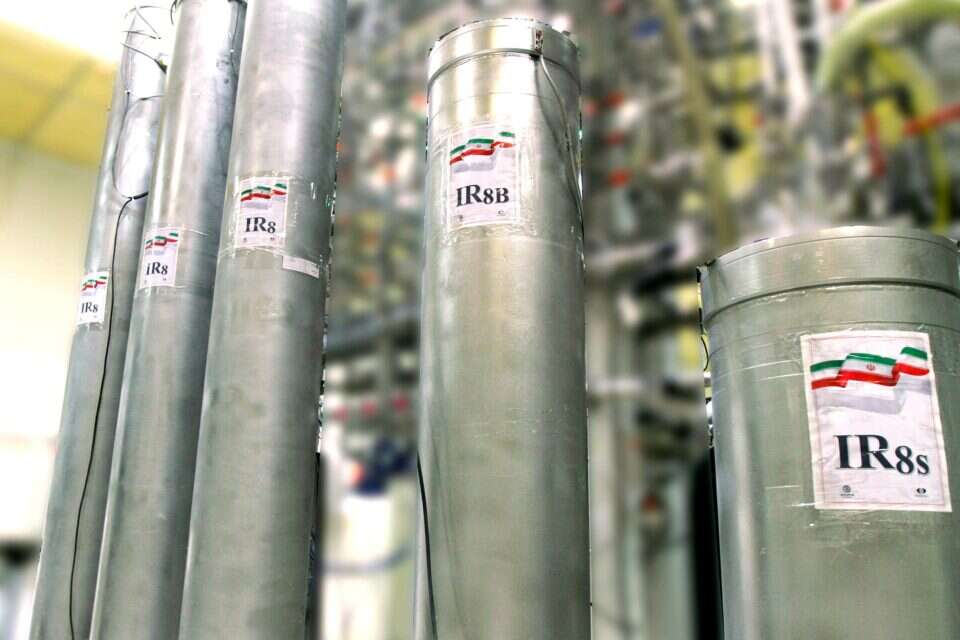
He sees many disadvantages and two advantages to the agreement: "At the moment, they're making progress in every field, and it's taking them a few years back. The enriched material goes out, the centrifuges are falling apart, and it's an important issue. I also estimate that the agreement will be a moderating factor, because they'll want to realize its benefits. On the other hand, according to the current agreement, within a few years they'll have a legitimate nuclear program, which is crazy. And the most serious part of the agreement is that there is no mechanism to prevent it. We're obligated to make sure it doesn't happen."
Q: To bring back the military option discussed decade ago?
"Three things have always worked with the Iranians: military pressure, internal distress and political pressure. When these were used, they prompted the Iranians to make their biggest decisions. Iran can be deterred, and we have to have the capability to operate against them."
Sa'ar is busy with the expected change of government in Iran, and the decisions that the next leader will make. "Ultimately, in Iran there has only been one change of leader, and each leader made a strategic decision on the nuclear issue. [Former Ayatollah ] Khomeini made a strategic decision to stop, and Khameini decided to go with a military nuclear weapons program, and afterwards he changed it because of crises that the country went through. The two of them made the decision as soon as they came to power, and I'm worried about the decision that the next leader will make."
Q: Iranian President Ebrahim Raisi?
"I think they're grooming Raisi to be the next leader. We see it, both in the way in which he was chosen and in the roles they're giving him at the moment. It seems that they're training him for the position."
Q: And is it good or bad for Israel?
"He is on the extremely conservative end of the Iranian system, and therefore he's an extremely problematic figure [for Israel]."
Sa'ar thinks that the strategic changes in the region, primarily the Abraham Accords, are extremely significant in deterring Iran. According to him, these agreements are expected to tighten and to expand to other countries. "There's a chance we'll see more countries become part of it. Maybe not all of them will go the way of an agreement, but some of them have already indicated the need to improve relations with Israel, and that changes all the regional dynamics."
Q: Explain Turkish President Recep Tayyip Erdogan's changed stance. After all, he hasn't suddenly become a Zionist.
"Turkey is a complicated country that has economic and regional problems, and in the case of Erdogan, political problems as well. He came to the cold calculation that at the moment, relations with Israel are more of an asset than a burden. It's also important for us that we have relations with as many countries in the region as possible, and we need to be capable of managing these complicated games, even with the Greeks and the Cypriots and the Turks, without having to choose."
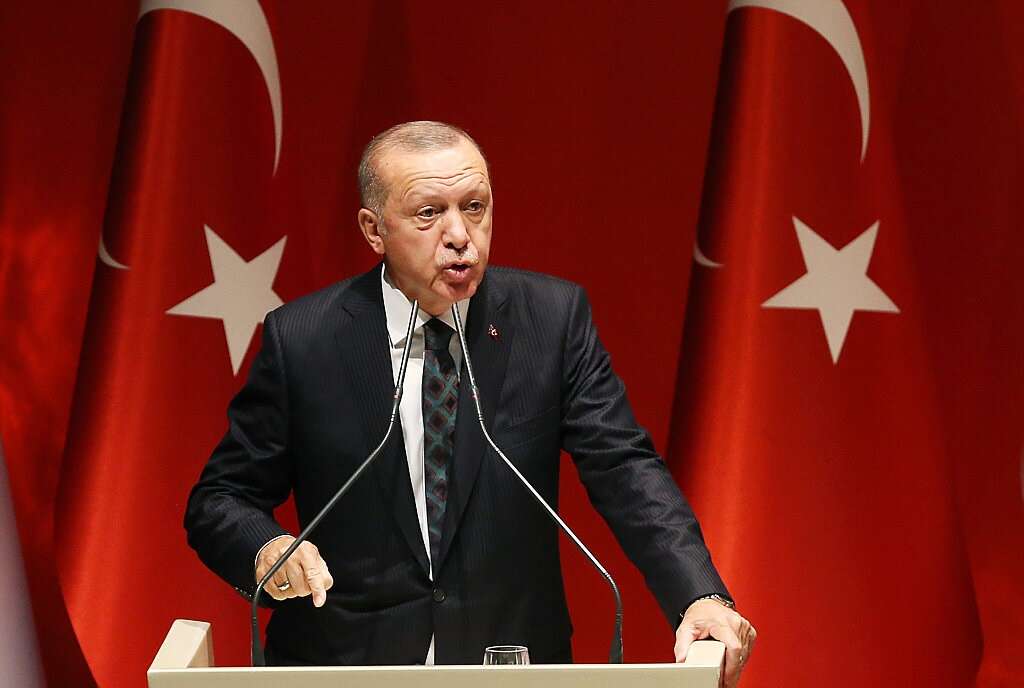
Q: Military Intelligence doesn't identify a guiding hand in the current terror wave.
"I doubt it can be defined as a 'wave,' like in the past," Sa'ar says. "We're in a very tense period, that we knew would come. It began with the terror attacks by Arab Israelis and quickly connected with the issue of terrorists in northern Samaria, which required us to go on the offense against problematic elements. We foiled three or four terror attacks by armed squads that were already on their way to carry them out. The Shin Bet security agency and the IDF Central Command deserve a lot of credit for this."
"The Palestinian public weren't part of this for a moment. There is weariness among them, as well as a lack of understanding of what, exactly, the issue is. The cry 'Al-Aqsa is in danger' doesn't resonate with the [Palestinian] population in Judea and Samaria. It's an east Jerusalem event, a bit Arab Israeli, but has nothing to do with Judea and Samaria."
Q: Wouldn't it have been right to have carried out these operations in northern Samaria earlier, and possibly prevented the terror attacks?
"We started even earlier, but it took time for the intelligence to ripen. There was an increase in inspiration, which is something that's hard to explain. It simply exists. The moment a terror attack was successful, people wanted to take a rifle and to go to an Israeli city. To stop it, we needed to carry out aggressive actions, enter villages in northern Samaria, make arrests, close the seam zone [a term used to refer to areas east of the Green Line and west of the Jerusalem-adjacent security fence], and that allowed us to get to a better place."
Q: The Palestinian Authority is struggling to restore governability in northern Samaria.
"They're taking steps. It's possible we'll need to enter northern Samaria for a more significant operation in the future." Israel, he says, has an interest in day-to-day life in Judea and Samaria going on as usual, with people working and making a living.
"The more you can separate the innocent population, who really want to work and to live, from terrorism, and to make sure there's a cost for it [the terror], the better. It's true in Judea and Samaria and it's true in Gaza. People are people. One Gazan who works in Israel means that six families that are reliant on the money he makes. It's in our interest to make sure that as many normative Palestinians as possible come and work with us."
Sa'ar is disturbed by Hamas' success in branding itself the master of the Temple Mount.
"It's something difficult to deal with, because it belongs to the world of psychology. It doesn't mean it's impossible to handle over time – this year we've already been more successful than during Operation Guardian of the Walls last year. We're a month into this event, and Hamas still hasn't succeeded in a single terror attack. Not in Judea and Samaria, not on the Temple Mount, not in Gaza. "People understand it, that big statements like 'Defenders of Al-Aqsa' aren't being backed up. Still, it's impossible to ignore the fact that there are Hamas flags there, and that Hamas has succeeded in creating an affinity between different sectors."
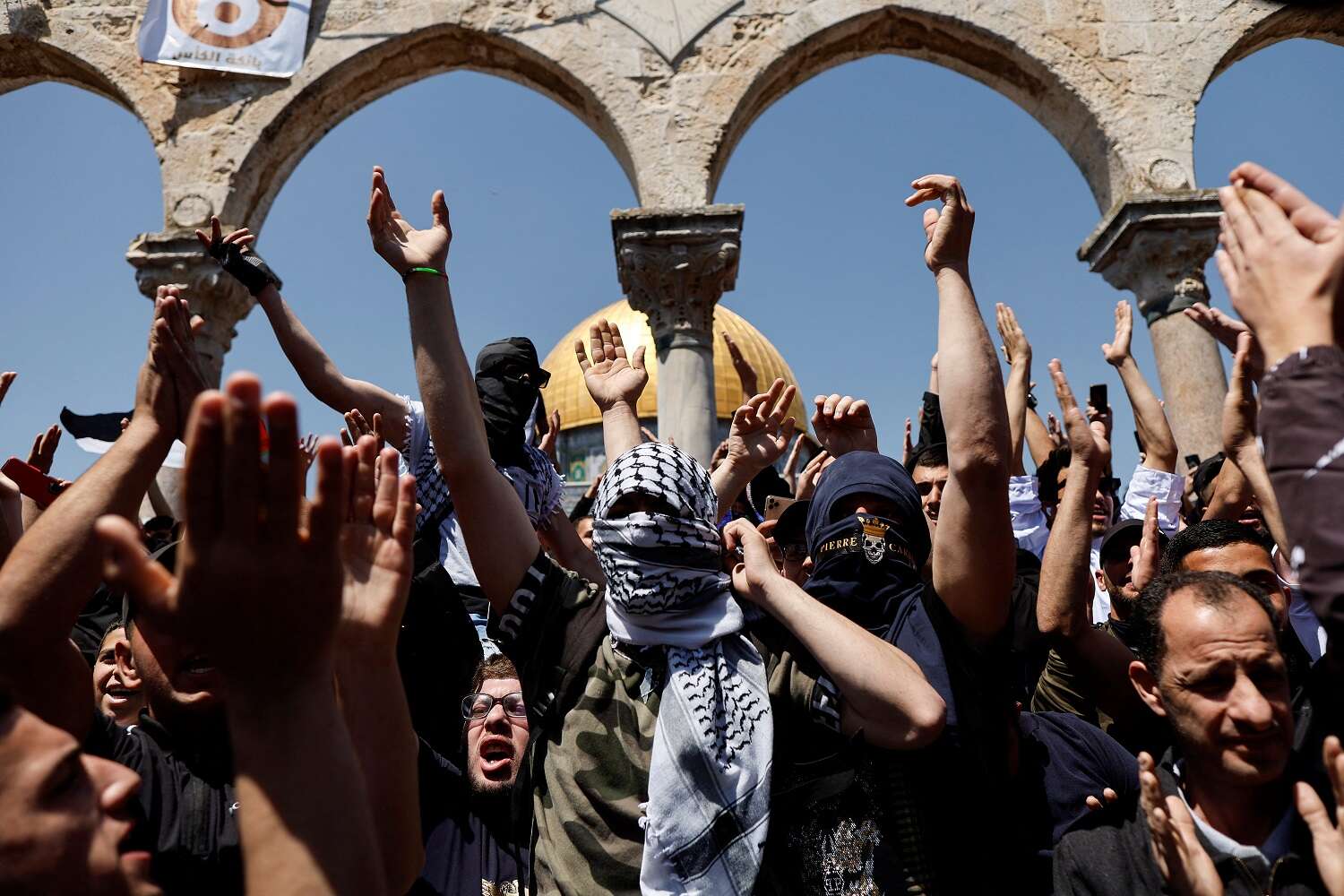
He calls the events on the Temple Mount the "TikTok War" and says, "This is the first time we're encountering it in full force. They know how it's depicted. Most of those who wave Hamas flags aren't Hamas supporters. They're east Jerusalemites who've never seen a Hamasnik. But like soccer fans, they know what hurts the other team when they're singing. So they sing for [Hamas heroes] Mohammed Deif and Yahya Sinwar. It's bad, and we all understand that we need to think very carefully about how to make sure that next Ramadan looks different."
Q: What can be done differently?
"Changes have already been made on the ground. The police are doing exceptional work. But we also need to take advantage of the changes in the region, that there are now Arab countries who want quiet and have a little more courage to speak out than in the past. Maybe put into action more interfaith elements. It's something that will require us to work all year round."
"But he emphasizes that for the most part, Ramadan has been successful for Israel. The wave of terrorism was prevented, and Palestinians were allowed near complete freedom of worship. "The fact that people could celebrating is a calming factor. Last Friday, there were 90,000 people on the Temple Mount, and it was quiet. We have a problem with 500 people who need to be dealt with."
Q: We paid a political price with Jordan, with the unprecedented criticism from the Jordanian prime minister.
"I think that comes from internal Jordanian issues. We faced nearly Pavlovian criticism, without relating to the issue itself, which – as mentioned – I think comes from their internal reasons and difficulties. It's our right to be critical in response, but [we should] remember that relations with Jordan are good, and after we get through this Ramadan, we'll be back at the same place."
Q: And you don't identify trends in Jordan that might disturb us?
"The Jordanian public still lives the story that most of the region has passed through. It creates a dilemma for Jordan, which wants to be a bit more open but is still dealing with the Palestinian issue and with Jerusalem. They understand their status at the Temple Mount has been harmed, they're more worried than we are about Hamas, and I think that we need to understand this and not to get too excited by their criticism. It's not something that will destabilize relations."
Subscribe to Israel Hayom's daily newsletter and never miss our top stories!
Egypt, on the other hand, recently brought its relations with Israel into the open, with open visits and the start of direct flights to Sharm el-Sheikh. Sa'ar explains this in the context of regional changes, and the fact that "the Egyptians saw the Gulf states sailing comfortably into the world openly with us, and not paying a price. They didn't want to be bypassed, and they understand the benefits of these relations. President Abel-Fattah el-Sissi is impressively engaged with the real problems of Egypt – the economy, the infrastructure – and he understands he won't benefit if he keeps relations with us on the level of security, and concealed. "The gesture toward our energy minister at the regional gas conference in Cairo [in February] sent a very clear message. He knew it was the only picture that would be published from there, and it was important for him that it would be about energy issues. It was a humane gesture that taught us a lot about the significant change."
Q: What's his vision?
"To transform Egypt into a country with a more stable economy, and with greater influence in the region."
Q: And for us?
"The peace is a very strong cornerstone in Egyptian policy. Peace gives them quiet, and I think Egypt today sees Israel as a positive element in the region. I don't think the current Egyptian leadership sees Israel as an enemy. Are there parts of the Egyptian population who think that? Of course. But it's not part of the leadership's perception."
Sa'ar says Egypt is a major factor in restraining the Gaza Strip. "For years, we used to say we were Gaza's breathing tube. Today Egypt is no less important, and sometimes even more important. They can give Gaza carrots or sticks. They're definitely a stabilizing element. They don't allow the transfer of weapons to the Gaza. This is an interest we share, because they had a bad experience with elements connected with ISIS inside Egypt, and they don't want weapons to come from them."
Hamas, he is convinced, doesn't want another war in Gaza. "This isn't an estimate, this is very strong information. Why don't they want war? For a number of reasons, not only because of deterrence. We are, of course, deterring in Gaza, and they don't have an interest in a war every year, especially when they're still in the military and civilian rehabilitation process, but there are limits to deterrence. After Guardian of the Walls, we worked correctly to create civil shock absorbers. The civil rehabilitation and the work in Israel influence the residents and create something for Hamas to lose. The people of Gaza want quiet, and Hamas – in contrast to its image – listens intently to them. Therefore, they're interested in inflaming Judea and Samaria and east Jerusalem, as long as it doesn't reach Gaza."
Q: But it could, like it did in Protective Edge and Guardian of the Walls.
"They understand this, and are taking risks. Organizations like these are conflicted, because their religious and ideological anchor is very stable. So we have to act from the assumption that we could be dragged into Gaza. What could change their policy? An event on the Temple Mount, or something else they would have to respond to."
He thinks Israel's strikes last week in Gaza, in response to rockets fired at Israel also helped calm things down. "They were very powerful attacks, like in war. After them, Hamas took to prevent further launches, with arrests, searches and confiscating weapons. It's a fact that there aren't events every day. It's using many means of restraint. Still, in Gaza there are dozens of factions, each one of which has a rocket, and if not, they'll steal one."
According to Sa'ar, 10,000 Palestinians entering Israel to work every day is also a significant asset.
Q: Would you increase the number of workers?
"Yes. The more normative workers, whom you can filter, the better. On the humanitarian level, the people there need food. They need to live … It won't solve all the problems for us, but it gives us another tool. There are only two limitations: the situation in Gaza mustn't be better than the situation in Judea and Samaria, and the entry of workers mustn't pose a security problem."
Hamas, he says, has been struggling to rehabilitate itself militarily since Guardian of the Walls. "Some of the things they are rebuilding, and some they're struggling with, and they're working on quantity, not quality. Not everyone in the security system agrees with me, but I think it will take them years to rehabilitate."
Q: Are they rebuilding the tunnels?
"One of our achievements is that Hamas has lost confidence in the tunnel as a military tool. There will be tunnels, because they don't have a choice, but they won't use them like they thought they would."
Q: Which of their weapons are getting more powerful?
"Mainly rockets. They're not succeeding in increasing range or in improving quality. It's mainly replenishing numbers, but still – if we don't know how to reduce their rate of fire, even if it's not exact or effective, it won't really matter, because what's important is that our people will feel that it's being stopped."
Leader of Hamas in Gaza Yahya Sinwar, he says, sees himself as an expert on Israeli society. "Take into account that Sinwar reads everything you write. He plays with our heads to show he knows us. But we turn him into a super villain too often. It doesn't work like that. He's a unique figure, but Hamas is a system."
Q: Do we need to take him out?
"I place less emphasis on eliminating one person as a way of dealing with a system. Does he need to be a target in the next war? Of course. Does he need to be a target outside of war? Removing him from the equation would, of course, be dramatic, but there's a high measure of uncertainty. The elimination tool exists, but it isn't a magic solution to anything, apart from the fact that he provides a picture."
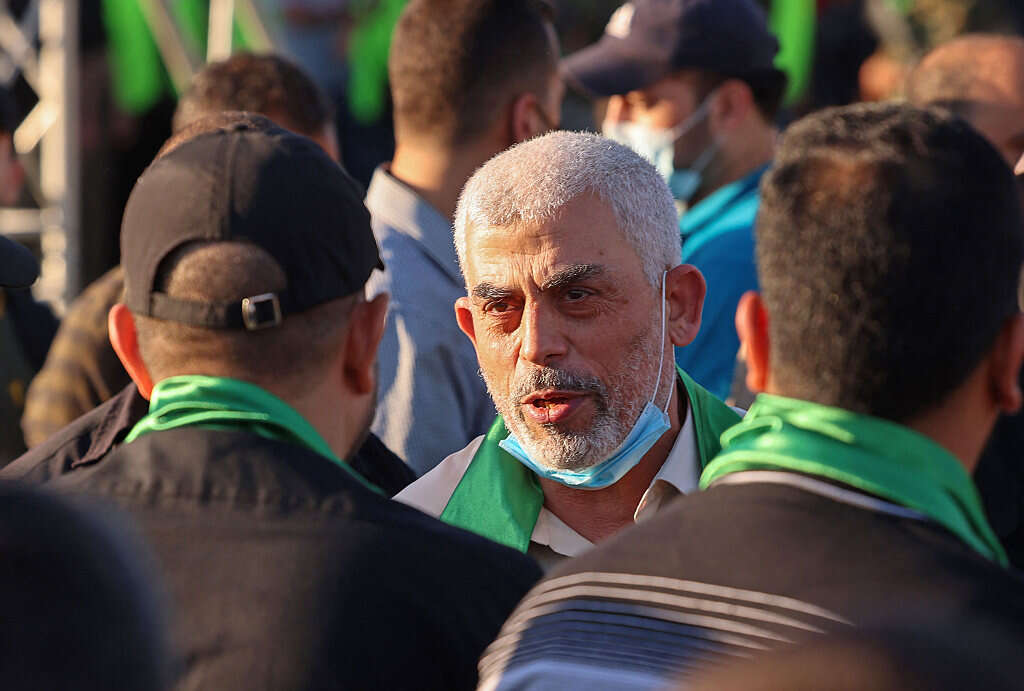
When it comes to the north, Sa'ar calls Hezbollah a "terror organization that took control of a state." He thinks Hezbollah leader Sheikh Hassan Nasrallah also wants quiet in the northern region, especially now that Lebanon is going into an election. "Hezbollah is currently an extremely restrained organization and responsible in using its force."
This stability also has a price, mainly in Hezbollah building up its power. "It doesn't make sense to think that Hezbollah can be prevented from becoming stronger. We need to identify where we don't want them to gain strength, and focus the effort there. Find weak points and to work on them. I think we are able to do this well – to look at the entire system, from the weapons industries in Iran down to who receives them at Hezbollah."
Q: Are there targets you set for yourself and haven't succeeded in reaching, such as its precision missiles?
"Once precision [missiles] were only for the superpowers. With today's technology, it's simpler. From the moment the Iranians achieved them, and knew how to teach it, it was clear we wouldn't be able to prevent it forever. But we're disrupting and delaying them while also building solutions, from defense to offense."
Nasrallah, he says, is mainly concerned by the internal political-economic situation in Lebanon. "He has no desire to rub up against Israel or sting us. He is ready to live with the fact that we're attacking him in Syria as long as we don't attack him in Lebanon. He's responsive, and he's proportional. He'll respond to what we're doing, and if we change the equation towards him – he'll respond.
"Nasrallah is very dedicated to stability, but we mustn't be confused: over time, the Iranians are building a system in their vision, sometime in the future they'll know how to counter us. We need to prevent that."
Sa'ar thinks Israel has a "crazy, exaggerated glorified" view of Nasrallah. "We say he doesn't lie, that he doesn't make mistakes. He lies, and he makes a lot of mistakes. In my opinion, his sole advantage is his experience.
Q: And if the Iranians demand that he act?
"That's not the way their relationship works. Nasrallah isn't an Iranian protégé. He's part of the Iranian system. He doesn't receive instructions from them, he's a partner to the decisions made in Iran. He's a major Iranian asset who is only deployed for something very important. But he isn't only Iranian or only Lebanese. He's Iranian, Shiite, Lebanese, and the most senior figure in the Shiite axis, after [Ali] Khamenei.
In the next war, Sa'ar thinks, Khamenei will try to create a "significant burn" that will damage Israel's status in the region. "A difficult experience for the Israeli public, tremendous damage, surprising events. Of course, he won't occupy the Galilee, but he's aware of the effect that a Hezbollah force taking control of a community for a few hours would have. That's what he wants. In his view, another blow and another blow, more cracks to the national image and resilience, will break us over time."
Israel will also need to continue operations against Iranian targets in the northern arena for the foreseeable future, he says. "As long as there's an active Shiite axis … we'll have friction with it, but we need to make sure that our public doesn't pay a price. But the very act of operating this force in this region, in this neighborhood, is important. Some of the assets they attribute to us in the region stem from the fact that we don't allow forces to operate against us, and we don't stand idle in the face of threats."
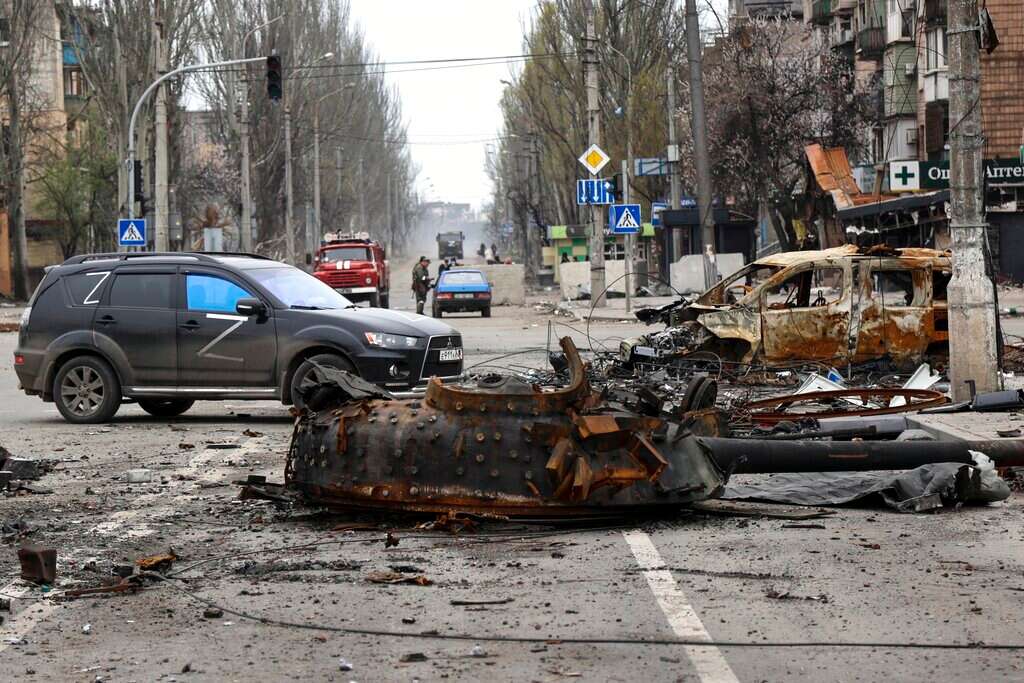
The Russian lesson
Since Russia invaded Ukraine, the Military Intelligence Research Division has been studying events there.
"This is a type war we thought we'd never see again. We're trying to understand what caused the Russian army's poor performance, and what disrupted them. I think they had completely mistaken expectations of this war, of the level of opposition they'd face in Ukraine. I think they prepared for something completely different."
Q: And what has Israel learned?
"That it's important to prepare and understand what kind of war you're fighting. Because if you don't, it doesn't matter what your capabilities are, you start on the wrong foot and it's very difficult to recover."
Military Intelligence is also dealing with the Ukraine war's implications for our region. "There are countries that don't have the ability to withstand shocks. Who are nearly 100% dependent on food imports, some of which come from Russia and Ukraine. The increase in prices has already had dramatic ramifications for Egypt and Lebanon. It's a major event."
Q: Do you see another Arab Spring on the horizon?
"In our annual intelligence assessments, we noted two events that might be 'grey rhinos': problems we see and identify, but don't know when they'll charge. The first is Judea and Samaria, and the second is Lebanon. Both are liable to develop into chaotic events. I don't know when it will happen, but we need to be ready for the possibility that Lebanon will collapse, and understand what that means and how it will affect us."

